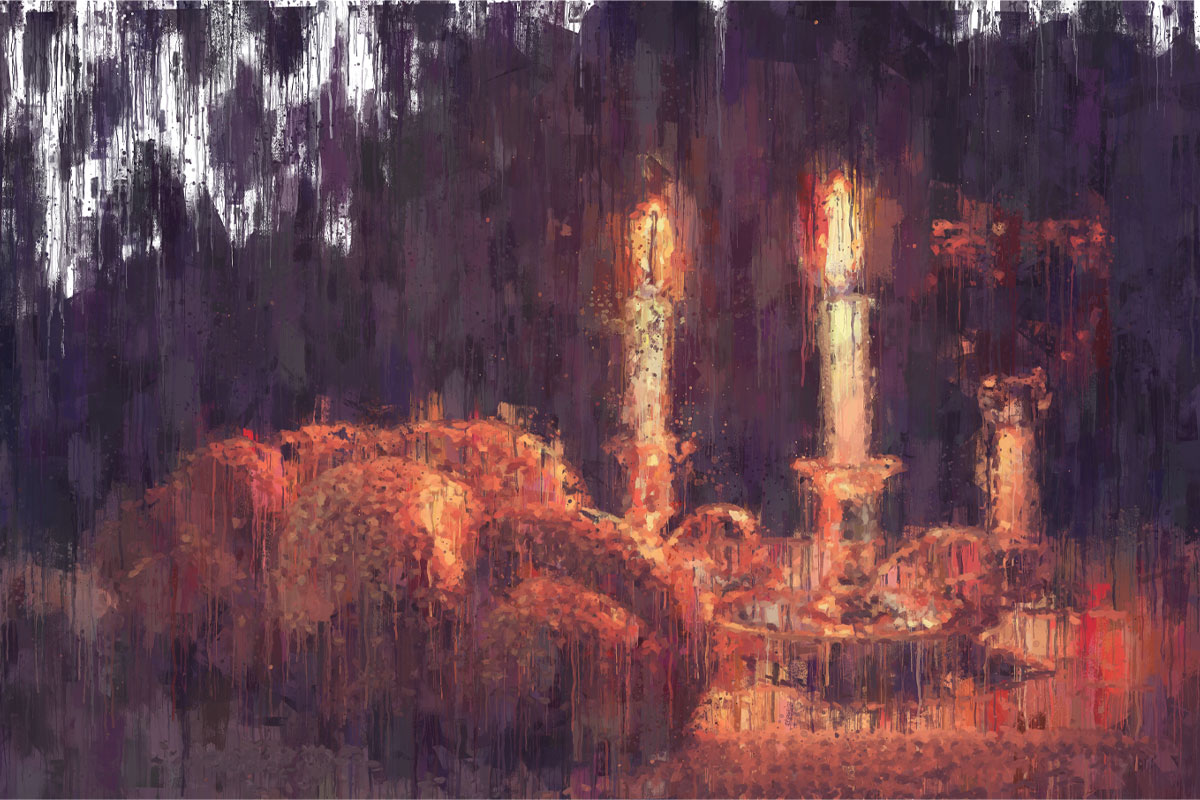For many Jews, observing Shabbat is the centerpiece of their Jewishness: an oasis of ritual, tradition and rest amidst overscheduled lives. Or, at least, that is the idealized standard that many of us believe we need to create each week. Demanding jobs, busy schedules and kids are just a few of the stressors that can eat away at how much time and effort we can put into weekly observances.
For those of us who did not grow up in Jewish homes, however, Shabbat stress can run even deeper. As a convert, when I see images of large, extended families sitting down at the Shabbat table together, I sometimes feel a pang of sadness that my daughter and I are the only Jews in our entire family. My family are good sports when it comes to joining in Jewish customs, but being the only (adult) Jew in these circumstances is not quite the same as celebrating with a family that has grown up prioritizing Shabbat. This also means that the logistics of Shabbat (meal planning, cooking, candle lighting) are my responsibility. While I enjoy these tasks, having to do them on a weekly basis along with life’s many other chores is a hard balance, and I sometimes find myself wishing I had someone to share them with.
My conversion journey began about three years ago, after discovering Jewish ancestors in my family tree. The details of their lives (and probable forced conversion to Catholicism) are mostly a mystery to me, but learning more about Jewish life in 19th century Europe led me down a delightful path to my own conversion, which I completed in early 2021. Despite my ancestral and present-day connection to Judaism, when I first started observing Shabbat, the simple acts of lighting the candles and saying the blessings felt a bit odd, almost as if I was intruding on an ancient tradition that wasn’t really mine to partake in. I knew the words and the motions, but performing the Friday ritual reminded me of my toddler playing in her pretend kitchen, silly in her attempts to mimic what adults do. This feeling came from worry over doing something “wrong,” self-consciousness in my feeble understanding of Hebrew, a healthy dose of imposter syndrome, and the uncanny feeling that I was somehow appropriating Jewish culture: just a child playing Shabbat. While time, practice and growing confidence in my Jewishness have helped alleviate these feelings, they haven’t totally disappeared, especially when they are layered on top of my wistful desire to have other Jews in my family. This creates a perfect storm of negativity to rain on my Shabbat experience.
Additionally, I have yet to find a synagogue that feels right to join (I blame the pandemic, several cross-country moves, lack of childcare, the aforementioned imposter syndrome, etc.), so I also lack a larger Jewish community that could help alleviate some of the Shabbat isolation I feel. The struggle to find a supportive Jewish community is one that many converts experience at some point. Jews of color, LGBTQ+ Jews, Jews in rural and/or heavily evangelical areas, and financially insecure Jews who cannot afford temple fees can be even more at risk of feeling isolated and lonely.
The question, then, is how to fight back against these feelings. While my impulse is to try and vanquish them from my mind, I know that ignoring them or trying to force myself to get over them is unproductive. Instead, I try to give myself the space to feel these feelings – acknowledging that they are valid – and find ways to create silver linings. For instance, the fact that I don’t have Jewish extended family (or family customs) puts a lot of pressure on me to create Shabbat magic. However, trying to think of this as an opportunity to create my own traditions has helped alleviate some of the stress. Taking my daughter to tot Shabbat programming at our local JCC has been one helpful way to add something special to our Shabbat experience. Teaching her to sing the candle blessing has also been fun, though she still needs to be reminded to not yell “happy birthday” and blow them out when she’s done.
Services (in-person or online) aren’t a big part of my life right now, but I’ve fallen into the habit of starting my Saturday mornings off with Ellen Frankel’s masterpiece “The Five Books of Miriam: A Woman’s Commentary on the Torah” before the rest of my house is awake, which helps me feel connected to generations of Jewish women who challenge and inspire me. My bookshelves are filled with books by great Jewish authors, including as many as I can find that are by writers who do not fit the stereotype of the bat mitzvahed, Ashkenazi, Jewish-summer-camp-and-Hebrew-school-attending Jew that, to a convert, can seem like the golden standard of Jewishness. While the ancient beauty of Jewish traditions is a big part of what drew me to learn more about Judaism, what compelled me to become a proud Reform Jew is the multiplicity of beliefs and practices that are celebrated among Jews. Remembering this helps me find confidence in my current Shabbat observances, even if they don’t align with the idealized standard I’ve glorified in my head.
My beit din felt I was prepared to officially become a member of the Jewish tribe; it is now up to me to remember that traditions are not born overnight. I deserve time and grace to create these within my own home. Convert life, though filled with unique challenges, presents the convert with the opportunity to create a practice from the ground up – to explore Judaism with an open mind and find observances that are meaningful on a personal level. Though my own Shabbat still feels like a work in progress, every week presents a new opportunity for me – and fellow converts – to find what feels special.








